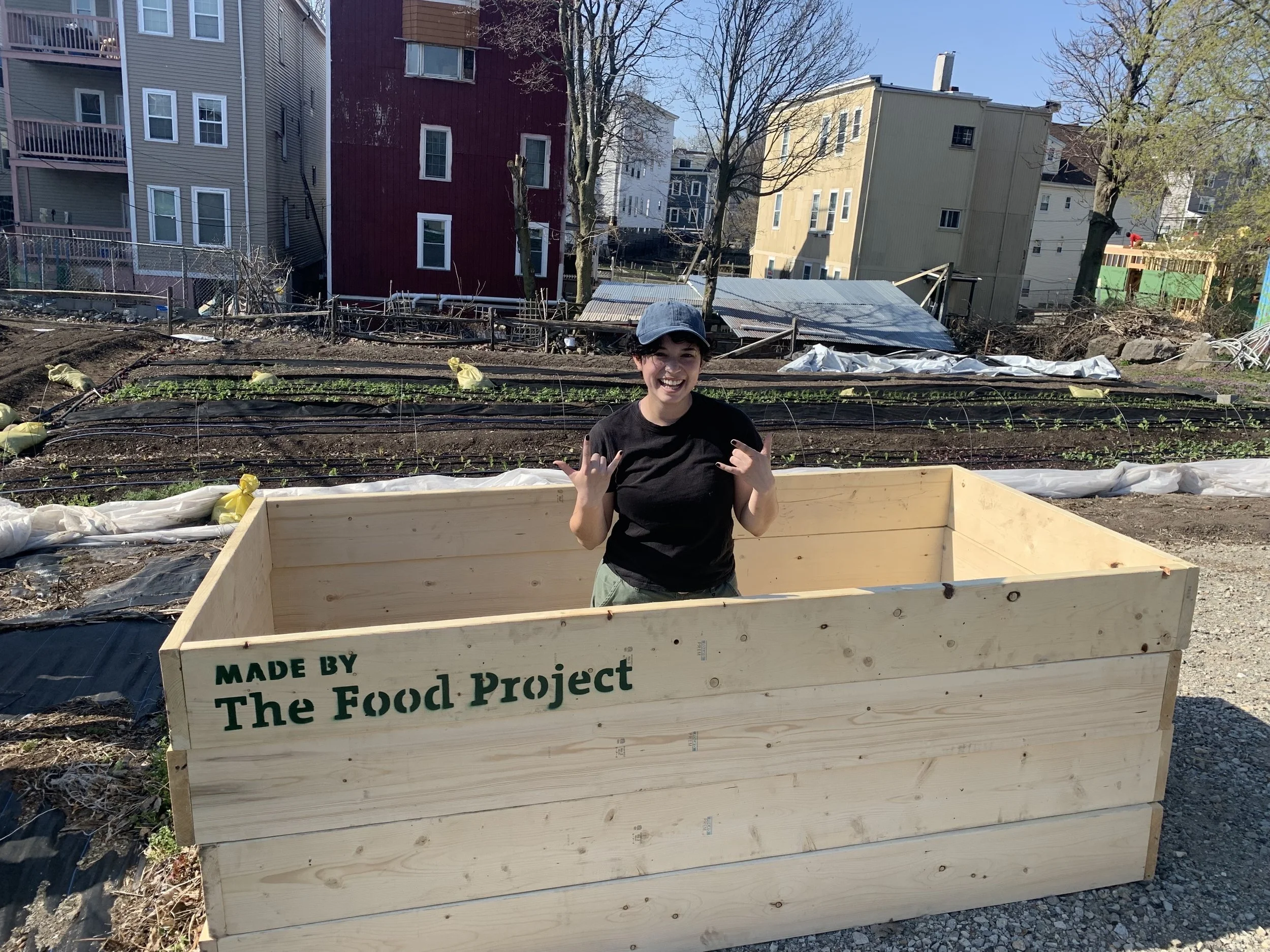Build-A-Garden in Boston
2022 was a banner year of our Build-A-Garden program. This program, a significant part of our organization's efforts across the academic year, aims to create sustainable and accessible individual and community gardens in Greater Boston and on the North Shore, fostering community engagement and promoting healthy food choices. Below, we'll delve into the highlights and challenges of the program in Greater Boston, as well as explore the partnerships and community collaborations that have shaped its success.
The year began with some adjustments as a new Alumni Fellowship Program was integrated into Build-A-Garden and a new partnership with PowerCorpsBOS, a City of Boston program to provide job training for green industries, was formed.
Our staff’s commitment, in combination with support from PowerCorpsBOS and our community members, enabled us to finish the build season weeks ahead of schedule. We accomplished the remarkable feat of constructing 90 beds, far exceeding our target of 75. This achievement showcases the dedication of those involved, as well as the local enthusiasm for this program. In total, between our two regions, The Food Project built 193 raised beds in FY22.
FAO Schwarz Fellow Vanessa Barragan poses in an accessible raised bed.
Innovating for Accessibility
One of the notable developments in the Build-A-Garden program this year was the introduction of accessible beds. Recognizing the needs of elderly individuals who desire to participate in gardening but face challenges with low beds, we initiated a trial program. These higher beds provided easier access for older community members, allowing them to engage in gardening activities. While we are still in the pilot phase, the strong interest from community members highlights the importance of accessible options.
Engaging with the Community
Greater Boston’s Build-A-Garden thrived due to the incredible support and collaboration within the local community. Numerous community members expressed their desire to contribute to the program by volunteering and helping to set up gardens for others. Recognizing this enthusiasm, we are considering organizing a "Build A Gardeners Build for the Other Gardeners Day" in the future, facilitating greater community involvement.
Greater Boston Dirt Crew posing after delivering soil to raised bed gardens
In addition to individual contributions, we embarked on some exciting collaborations with community groups. For instance, we worked with the Mattapan community to build nine beds as part of their efforts to beautify Mattapan Square. This meant that our Dirt Crew members were able to interact directly with community members, generating curiosity and enthusiasm about our work and the role of urban agriculture. Similarly, we assisted Dorchester’s Folsom Street Community Garden by rebuilding its deteriorating beds.
Our collaboration with PowerCorpsBOS proved to be fruitful in multiple ways, as it gave us access to their knowledge and genuine interest in community development. While working together, we engaged in conversations about the implications of our work, such as the potential impacts of gentrification. Through these discussions, we learned the importance of maintaining constant communication with the community, ensuring their active involvement and decision-making power.
Wrapping up another Build-A-Garden season, we were proud of the accomplishments, partnerships, and community collaborations that have shaped its outcomes. The resiliency of our Build-A-Garden staff and our youth, combined with the support from PowerCorpsBOS and the enthusiasm of community members, enabled us to exceed our goals and create a positive impact.
We remain dedicated to promoting community engagement, sustainability, and accessibility in gardening, and we look forward to building upon these achievements in the years to come. We’re grateful to FAO Schwarz Fellow Vanessa Barragan, our Dirt and Root Crews, and so many community members for their work and dedication. Together, we are sowing the seeds of change and nurturing thriving communities through the power of sustainable agriculture!




